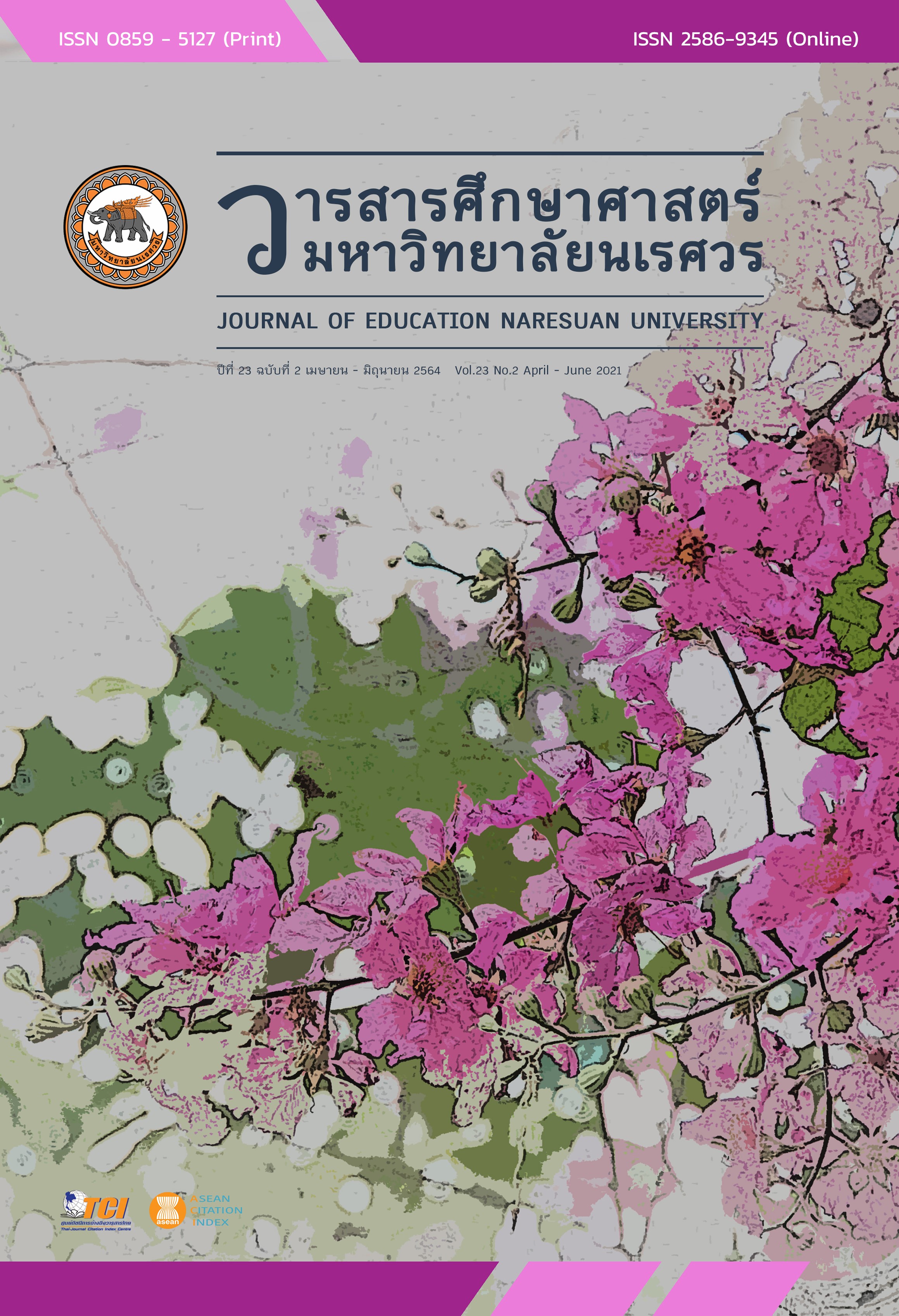SMART LEARNING FOR HUMAN RESOURCES DEVELOPMENT IN CORRECTIONAL WORK สมาร์ทเลิร์นนิ่งสำหรับการพัฒนาบุคลากรในงานราชทัณฑ์
Main Article Content
Abstract
This article aims to present the concepts and framework definition of Smart Learning by explaining the evolution of Smart Learning, the importance of Smart Learning, designing the environment of Smart Learning, and the concept of population development with Smart Learning in Korea. As well as presenting the concept of Smart Learning to human resource development in correctional work. The definition of Smart Learning mean the learner is the center by considering the types and abilities of each learner that is diverse who can use all learning models such as e-Learning, m-Learning or u-Learning through learning from various smart devices on the internet, laptop, smartphone, multimedia, etc. to use in the learning process. Smart Learning has evolved from e-Learning to m-Learning to u-Learning, respectively like as staircase. Composition of "Smart Learning" has 5 components as follows: 1) the self-directed feature extends educational time by allowing for just-in time and any-time learning, 2) the motivated feature extends educational methods by providing experiential and collaborative activities, 3) the adaptive feature extends educational capacities by offering customized and individualized learning, 4) the resource enriched feature extends the educational content by facilitating various educational resources, and 5) the technology teaching feature extends educational time by offering local and global networks of communication. Using the concept of Smart Learning to human resources development in the correctional work. by developing the training models to be the "Smart Learning Models" will solve the problem which limitations of the correctional work. Specifically, the time of the correctional officers to perform in prison day and night. They switching to the guards. Therefore, they have no free time. Provided Smart Learning is used to develop the training model, it will facilitate the human resource development to be more effective. Allowing correctional officers to learn and improve themselves anytime, anywhere, any device as per their suitability. Promoting a learning organization and resulting in work efficiency. Being professional lead to be “Smart Correctional Officer”.
Article Details
The owner of the article does not copy or violate any of its copyright. If any copyright infringement occurs or prosecution, in any case, the Editorial Board is not involved in all the rights to the owner of the article to be performed.
References
Department of Corrections. (2018). Correction Act B.E. 2560. Retrieved from https://library2.parliament.go.th/giventake/content_nla2557/law21-180260-1.pdf. [in Thai]
Finding Company. (2018). Summary of e-Learning, m-Learning and u-Learning. Retrieved from http://www.finding.co.th/it-solutions/human-resources-hr/14-it-solutions/human-resources-hr/104-สรุป-e-learning,-m-learning-และ-u-learning.html# [in Thai]
Hwang, G. (2014). Definition, framework and research issues of smart learning environments - a context-aware ubiquitous learning perspective. Smart Learning Environments, 1, 4. 10.1186/s40561-014-0004-5.
Insa-ard, S. (2008). m-Learning. Retrieved from https://ceit.sut.ac.th/km/?tag=m-learning [in Thai]
Keawkiriya, T. (2015). Mobile learning an important step in modern education. TPA News Modern Innovation, 219, 9-10. [in Thai]
Khlaif, Z., & Farid, S. (2018). Transforming learning for the smart learning paradigm: lessons learned from the Palestinian initiative. Smart Learning Environments. 10.1186/s40561-018-0059-9.
Kim, T. C., Ji, Y., & Lee, B. G. (2013). Evolution to smart learning in public education: A case study of Korean public education. Retrieved from https://link.springer.com/content/pdf/10.1007%2F978-3-642-37285-8_18.pdf
Laohajaratsang, T. (2008). Meaning of e-Learning. Retrieved from https://www.kroobannok.com/1586 [in Thai]
Luephong, P., Tungsak, K., Songwut, N., & Tantivorakulchai, K. (2017). Training process and personnel development for sustainable human resource development. Journal of the Suvarnabhumi Institute of Technology (Human Sciences and Social Sciences), 3(1), 42-53. [in Thai]
Ministry of Education. (2010). What is e-Learning? Retrieved from http://www.moe.go.th/moe/th/news/detail.php?NewsID=16635&Key=news15 [in Thai]
Ministry of Information and Communication Technology. (2011). Executive summary: Technology policy framework information and communication period 2011-2010 of Thailand. Retrieved from https://www.slideshare.net/nstda/ict-2020-executive-summary
Namburee, S. (2013). Ubiquitous learning (u-Learning) learning everywhere in the web 3.0 era. Retrieved from http://sirichai.yru.ac.th/2013/08/ubiquituos-learning-u-learning-30.html
Petchmanee, N., & Nunsuk, P. (2010). Ubiquitous learning the genius of contextual awareness. Academic Services Journal, 21(1), 23-24. [in Thai]
Poovarawan, Y., & Numprasertchai, S. (2003). ICT for Thai education. Bangkok: SE-Education Public Company. [in Thai]
Punlumjeak, K. (2013). Ubiquitous: Learning anywhere, anytime. Retrieved from https://www.gotoknow.org/posts/274960 [in Thai]
Rawat, A., & Dangwal, K. L. (2017). Technologies for Smart Learning. TechnoLearn: An International Journal of Educational Technology, 7(1,2), 11-22. DOI: 10.5958/2249-5223.2017.00002.X
Royal Society of Thailand. (2010). E-Learning. Retrieved from http://www.royin.go.th/?knowledges=อีเลิร์นนิ่ง=๒๑-พฤษภาคม-๒ [in Thai]
Seal, C. E. (2014). Innovation for lifelong learning in digital society: Case studies in Korea. In the Annual Academic Meeting 2014 (pp. 1-4). Bangkok: Centara Grand & Bangkok Convention Centre at CentralWorld. [in Thai]
Sung, M. (2015). A study of adults’ perception and needs for smart learning. Procedia - Social and Behavioral Sciences, 191. 10.1016/j.sbspro.2015.04.480.
Thamkaew, K., Apikittithanadech, N. Thanyalakdeoch, P., & Tubchot, S. (2013). Conclusion of the ICT 2020 concept in smart learning. Retrieved from http://toon6842.blogspot.com/2013/08/ict-2020-smart-learning.html [in Thai]
Thammetha, T. (2018). Research trends in educational technology and communication. In the potential development project for graduate students in the field of educational technology and communication. Phitsanulok: Faculty of Education, Naresuan University. [in Thai]
Vate-U-Lan, P. (2008). Mobile-learning (m-learning) – wireless learning. Retrieved from http://thaimlearning.blogspot.com/ [in Thai]


